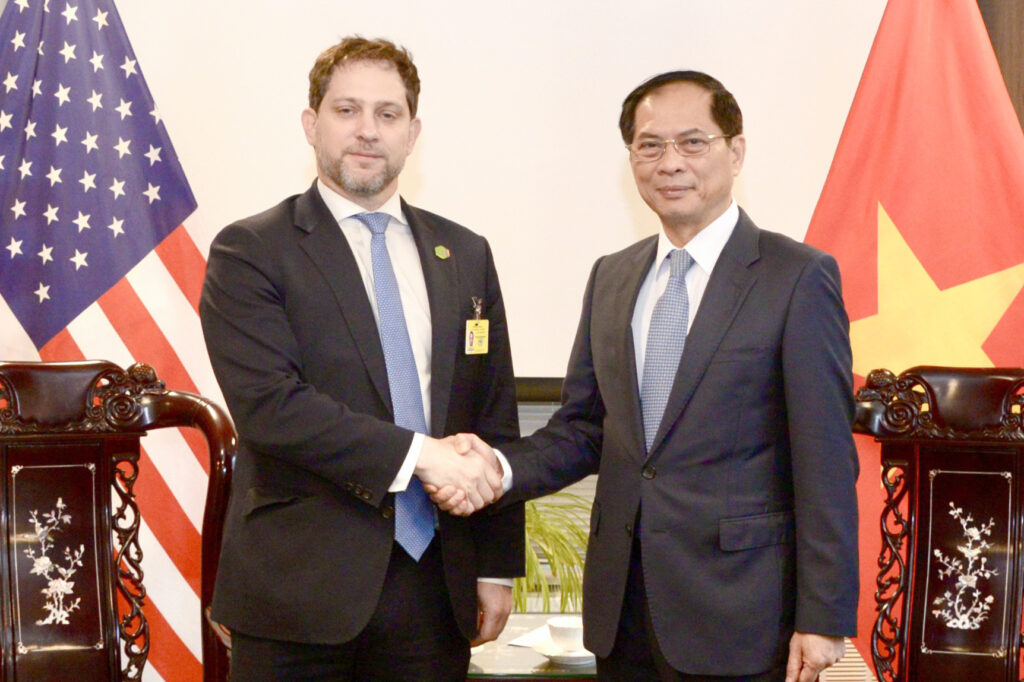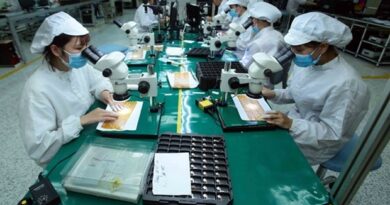Vietnam seeks US recognition of market economy status
General Secretary, President To Lam expressed hope that the US & Vietnam would continue actively implementing the 2023 Joint Declaration on upgrading bilateral relationship, focusing on discussions for the US to recognize Vietnam’s market economy status.
On September 25 (local time), General Secretary and President To Lam met with U.S. Senator Chris Coons, a Democrat and Chair of the Subcommittee on Foreign Relations and Related Programs (Appropriations Committee), in New York.
Senator Coons also serves as Chair of the Subcommittee on Intellectual Property (Judiciary Committee) and Chair of the Senate Select Committee on Ethics, while being a member of the U.S. Senate Committee on Foreign Relations.
During the meeting, General Secretary To Lam emphasized the unique and remarkable relationship between Vietnam and the U.S., noting that it serves as a model for post-war reconciliation and diplomatic development. The recent elevation of their ties to a Comprehensive Strategic Partnership marks a new chapter in bilateral relations.

Mr. To Lam highlighted the substantial contributions of the U.S. Congress and key figures such as the late Senator John McCain, Senator Patrick Leahy, and Senator John Kerry, all of whom played crucial roles in healing and advancing the relationship between the two nations.
Reaffirming Vietnam’s commitment to an independent, self-reliant, and multilateral foreign policy, General Secretary and President To Lam expressed his confidence in Vietnam’s continued growth in the new era. He also expressed satisfaction with the progress made in the first year of the Comprehensive Strategic Partnership and hoped for continued support from the U.S. Congress for this new framework.
Looking forward to the 30th anniversary of diplomatic relations in 2025, Mr. To Lam called on the two countries to intensify efforts to implement the 2023 Joint Declaration, especially through discussions to secure the U.S. recognition of Vietnam’s market economy status. He also stressed the importance of the two countries working closely to address global issues and contribute positively to the international community.
Senator Chris Coons expressed his strong support for Vietnam, recognizing it as a key partner in the region. He welcomed the elevation of bilateral relations and emphasized the practical progress achieved thus far, particularly in legislative exchanges between the two nations.
Coons highlighted the importance of enhancing cooperation in new and promising fields such as clean energy, liquefied natural gas (LNG), digital transformation, high technology, environmental protection, and climate change response. He affirmed his commitment to continuing the legacy of past U.S. senators, especially in addressing the consequences of war and fostering closer ties.

On the same day, Deputy Prime Minister and Foreign Minister Bui Thanh Son met with U.S. Deputy National Security Advisor Jonathan Finer.
Deputy Prime Minister Son reiterated that Vietnam considers the U.S. a strategically important partner and hopes to continue deepening the bilateral relationship based on mutual respect for independence and sovereignty.
He urged both sides to closely coordinate through their National Security Councils and related agencies in preparation for the 30th anniversary of diplomatic relations in 2025. He also called for stronger cooperation in areas such as trade, investment, science, technology, and innovation.
Deputy National Security Advisor Jonathan Finer reaffirmed the U.S. administration’s strong support for advancing the Comprehensive Strategic Partnership with Vietnam. He emphasized the U.S.’s consistent commitment to a strong, independent, and prosperous Vietnam and agreed to provide further resources for post-war recovery, high-tech cooperation, and the development of a high-quality workforce in Vietnam.
Both sides also discussed regional and international issues of mutual concern, including cooperation on the Mekong, climate change response, and maintaining peace, security, and stability, as well as freedom of navigation and overflight in the East Sea.


